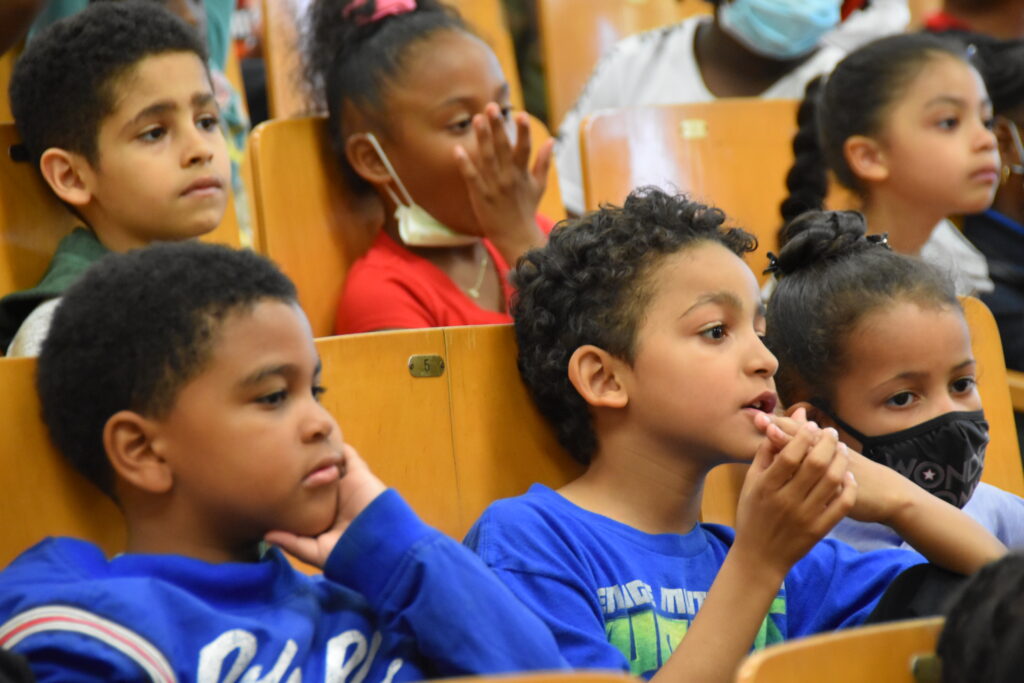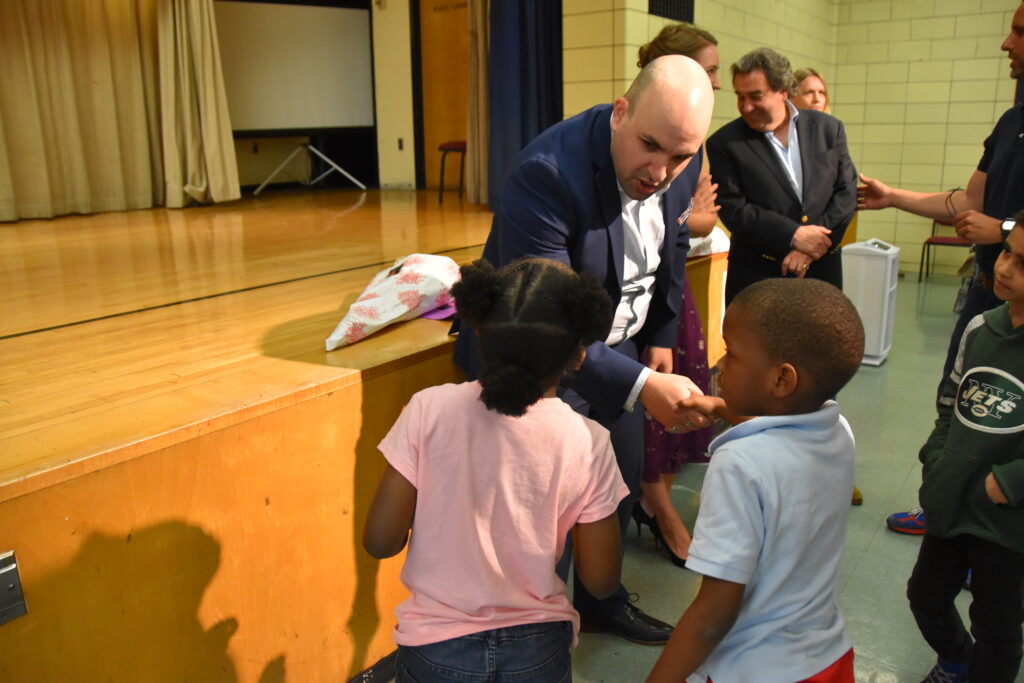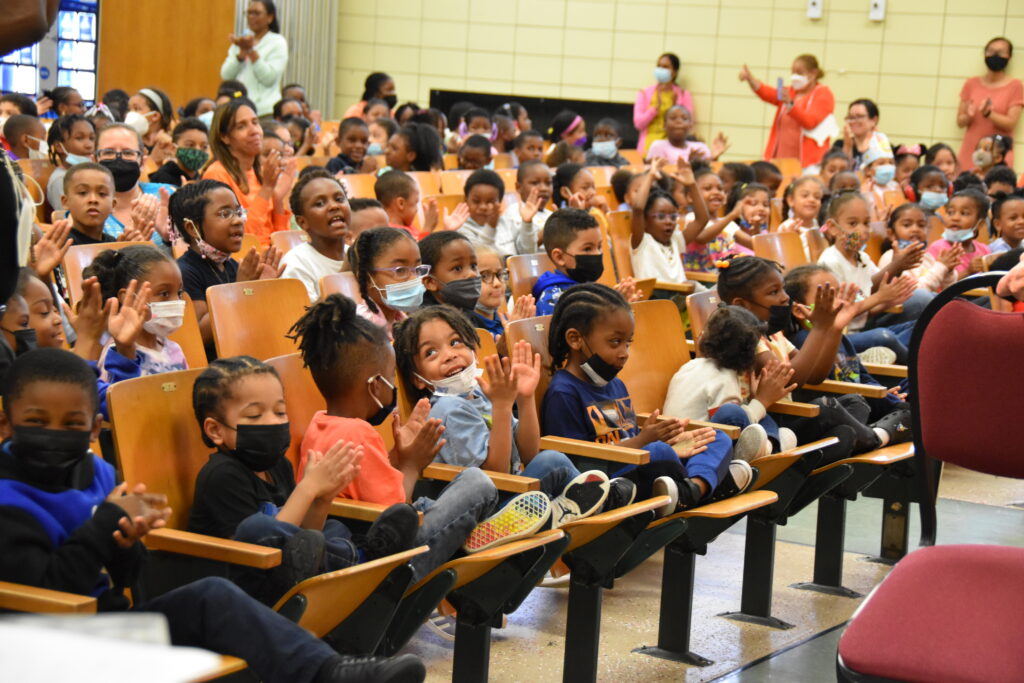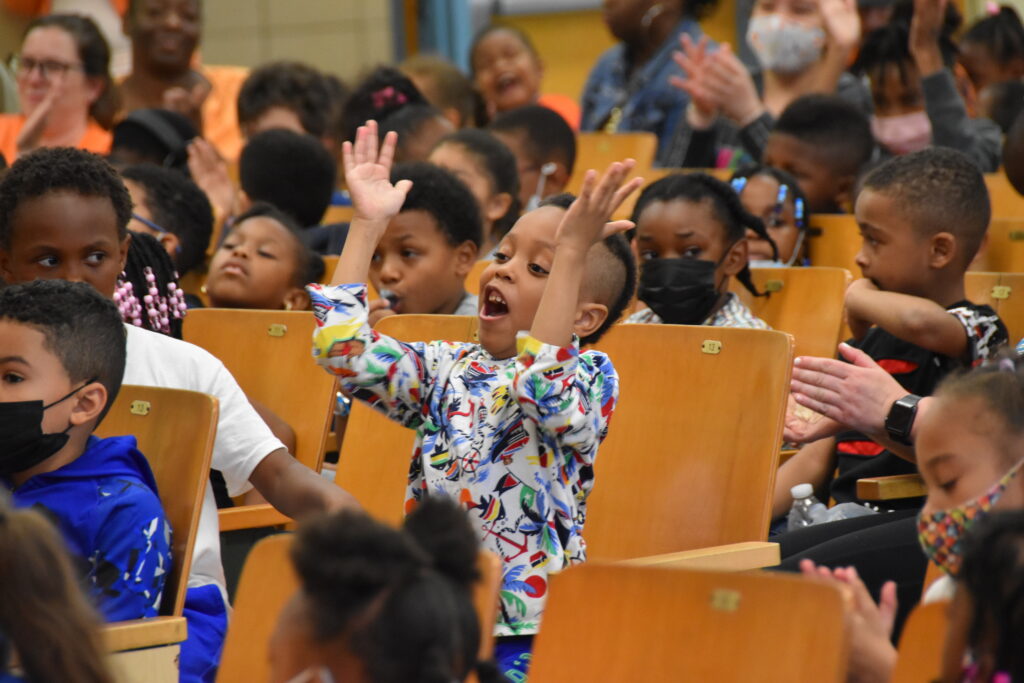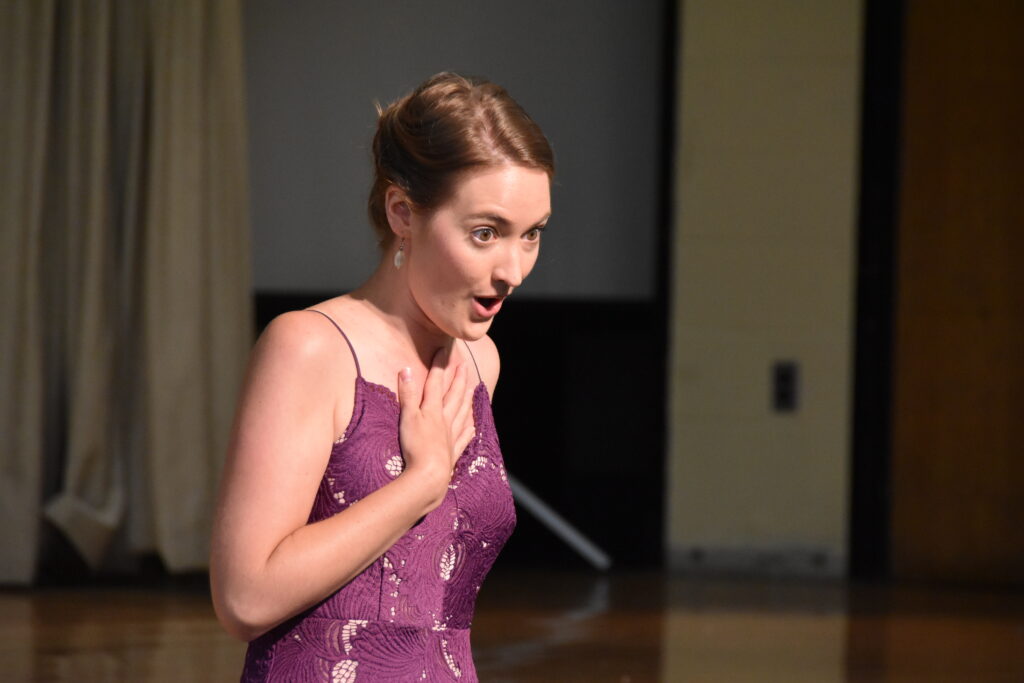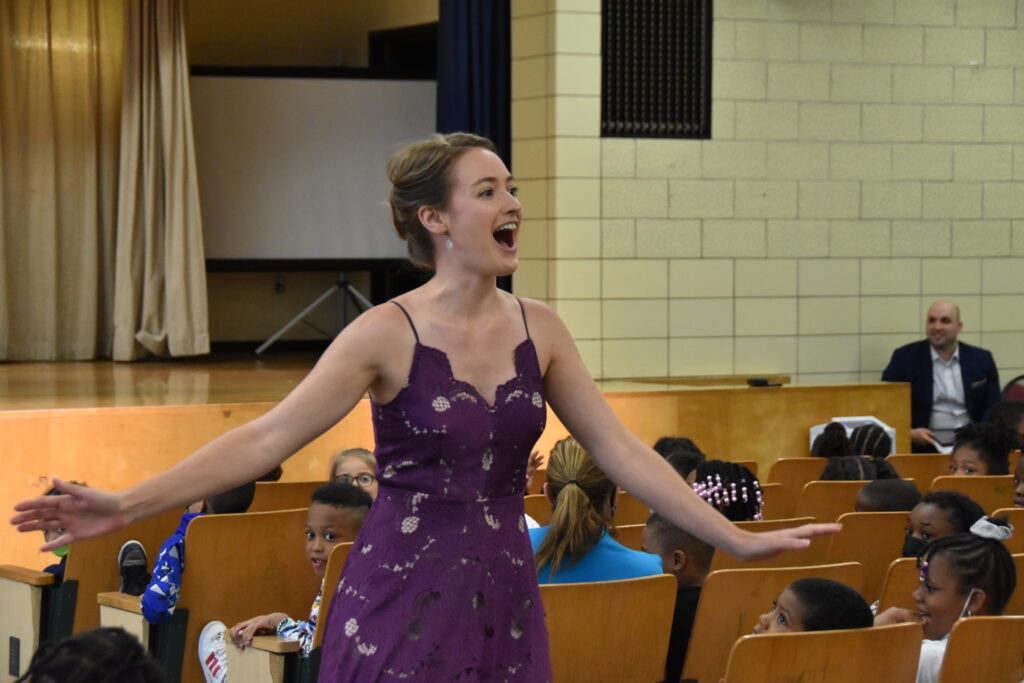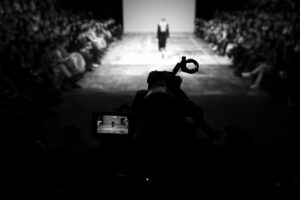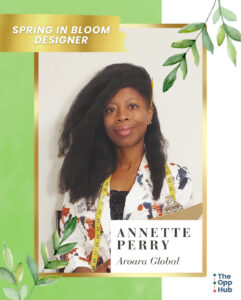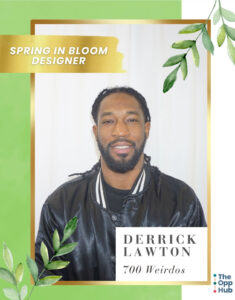BY AMANDA MOSES
Members of the New York City Opera provided students at Abe Stark Primary School 346 with a whirlwind performance in their auditorium on June 3rd.
When Jeremy Brauner and Kate Fruchterman walked across the stage for a jam-packed auditorium of elementary school students to a series of piano ballads, no one really knew what to expect. But once Brauner, a tenor singer, uttered his first verse the children’s jaws dropped and audible gasps could be heard.
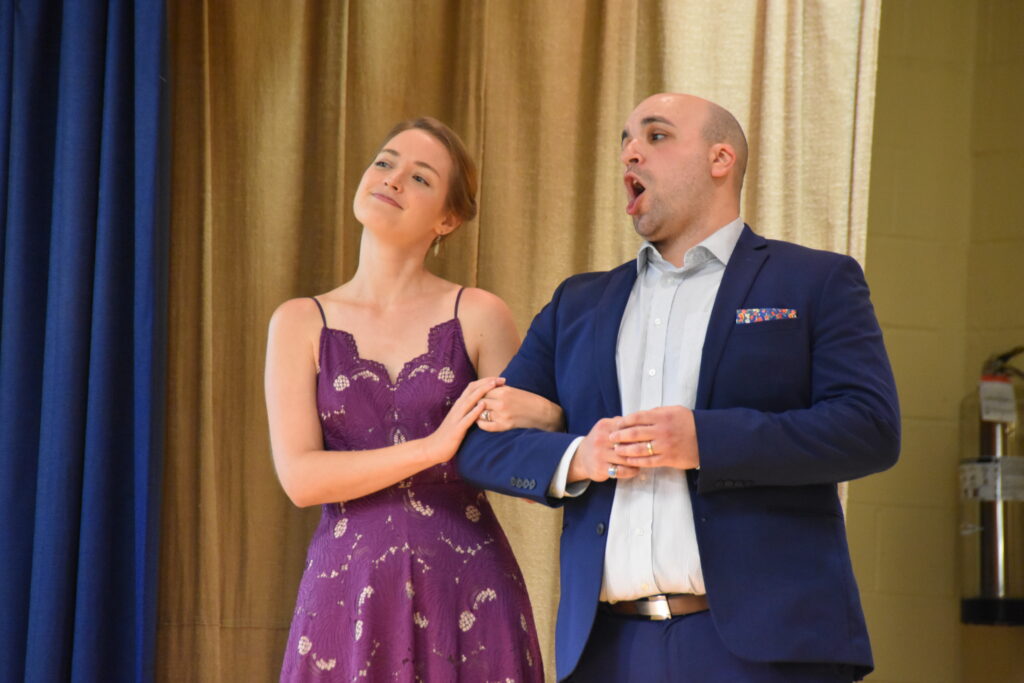
“Bravissimo,” the staff and children shouted as a loud applause followed his performance.
As soprano singer Fruchterman sang beautiful melodies in Italian, French, and English, the students could not hold back their excitement. They waved and interacted with the famed opera singer, who smiled and waved back.
“It was amazing having such an enthusiastic audience, the kids were waving and trying to get my attention and it was lovely to see them interact with us directly. It was such a pleasure,” Fruchterman gushed.
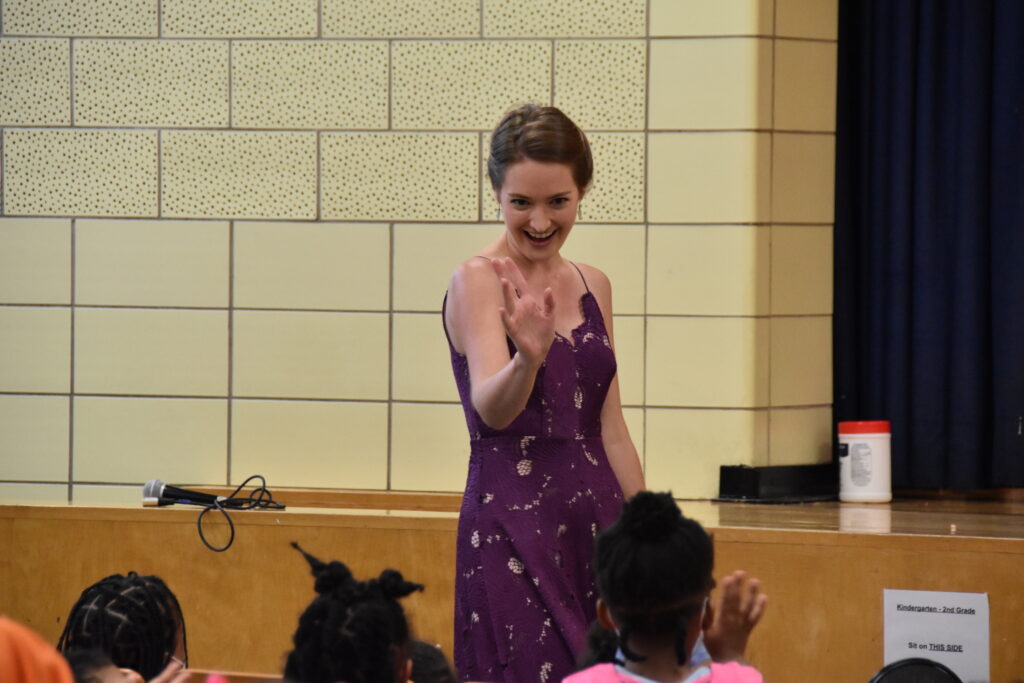
For majority of the students, this was the first time they have ever experienced an opera in-person. And that was exactly what motivated Paul Mirailh, a classroom para, to contact the NYC Opera to have them visit PS 346.
Mirailh took his family to the opera over the summer at the St. John Baptist Church on 76th Street in Manhattan, where they performed the “Barber of Seville” in Italian. He was so impressed by the performance that he decided to speak to Michael Capasso who is the General Director of the New York City Opera after the show, and learned that the singers visit and perform at New York City schools.
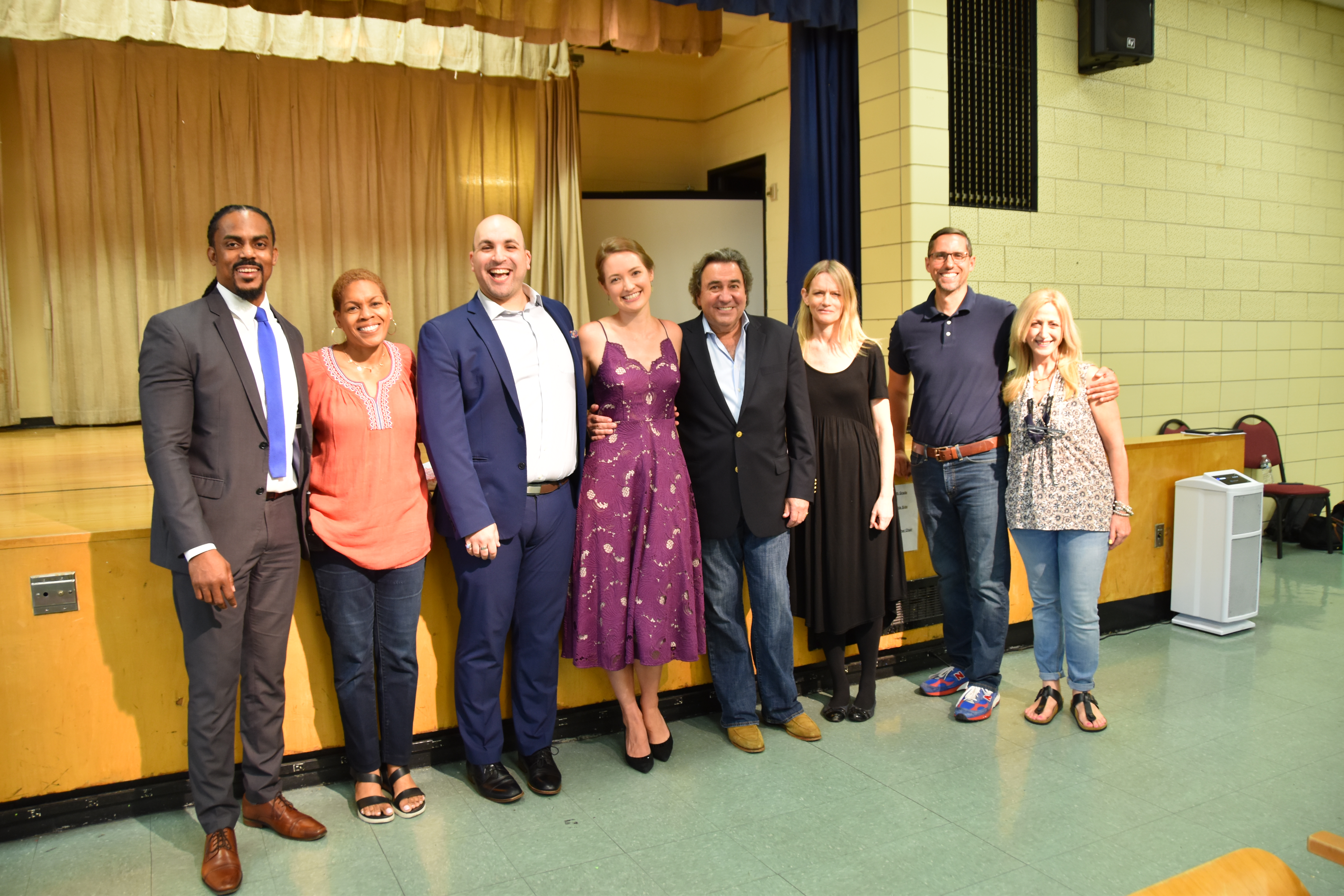
“I thought it was a great opportunity for our students to see something really truly different in the arts. We love our science, but I’m really keen and interested in bringing arts back into the schools. And so having everybody here to see something that they never would normally see and to be exposed to it, which is for me everything. Experience new things, exposure, creates new ideas and creates new doors that kids would never normally even conceive of, of opening. So, I’m just so thrilled that they came and we had a great time,” Mirailh said.
Traditionally opera was considered the people’s music that parody aristocracy; however, over the centuries it has become a high society art form. For Brauner, opera should be accessible for everyone, especially in young children to help foster such emotional and transformative music.
“As soon as Kate started singing or I, or Kathryn started playing the piano you can see the engagement and that’s just innate. This is one of the best audiences we’ve had in a very long time and the interactive elements and just to be able to reach out to kids like this is more of a gift to us,” Brauner, “And so just having exposure to it at a young age is so important because there are ways of accessing opera that you don’t know unless you try, or let someone introduce you to it. It’s an opportunity to know how wonderful it can be. So, it’s important because for me it was the same thing as when I saw it, at their age.”
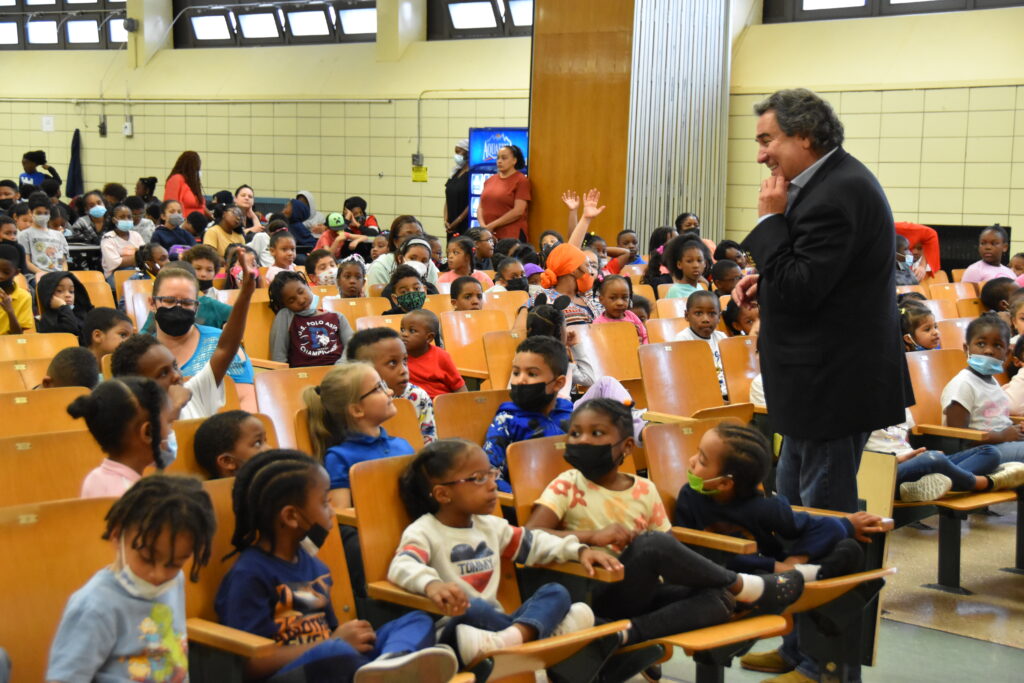
Pianist Kathryn Olander agrees that music transcends words and allows individuals to express difficult emotions and thoughts.
As a performer, these are the absolutely most powerful and important performances for me because music is so important in our lives and it’s a way of communicating without words, and you can feel that connection with the kids,” Olander said.
Photos by Amanda Moses
